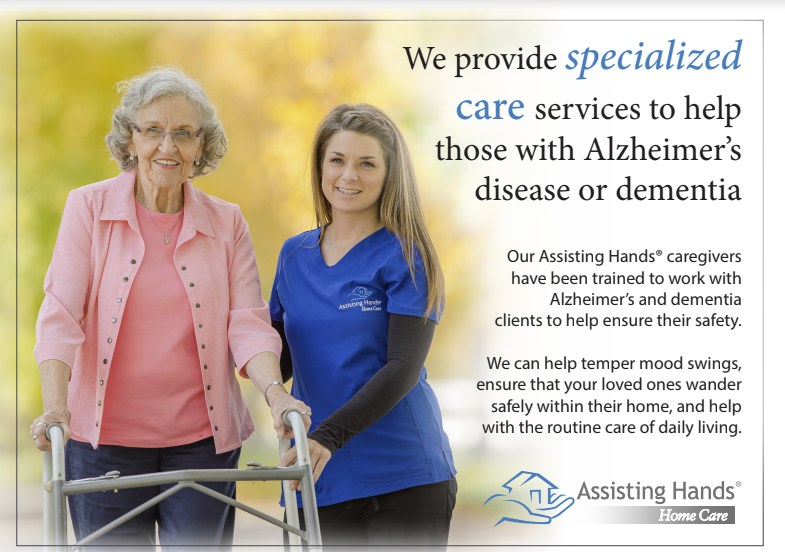All Categories
Featured
Table of Contents
- – Alzheimer Care Near Me Fallbrook, CA
- – Heaven Heights
- – Alzheimer's Care At Home Fallbrook, CA
- – Alzheimer Care Near Me Fallbrook, CA
- – Alzheimers Caregivers Fallbrook, CA
- – Senior Assisted Living Fallbrook, CA
- – Alzheimer Caregiver Fallbrook, CA
- – Alzheimer's In Home Caregiver Fallbrook, CA
- – Alzheimer's Care Near Me Fallbrook, CA
- – Heaven Heights
Alzheimer Care Near Me Fallbrook, CA
You might be able to obtain assist from relative, neighbours, volunteers or agencies. Some help may be available with the Home Treatment program in your area at no or reduced price. Contact your neighborhood Alzheimer Culture to find out more on services available in your area. Providers that can help consist of:: They give personal treatment in the house, aiding with eating, dressing and showering as well as light family jobs.
: Nursing services supply qualified experts in the home.: These programs supply home-delivered meals to help give well-balanced lunches and dinners.: These offer a pleasant visitor (paid or volunteer) to hang out with the individual doing a task such as walking.: These supply social communications for the individual as well as respite for the caretaker.

Providers for the senior and their caretakers vary in different districts, areas and regions. You can discover what services are offered in your neighborhood from a number of resources: Your local Alzheimer Culture Your family members medical professional, wellness clinic or social employee The general public health and wellness department in your location Neighborhood organizations Your buddies, family members, neighbors, specifically if they have actually been caregivers.
Alzheimer's Care At Home Fallbrook, CA
A liked one with dementia will need assistance in the home as the condition worsens. You can help by attempting to comprehend just how the individual with dementia regards their world. Provide the individual a chance to discuss any type of challenges and participate in their own everyday treatment. Begin by talking with your enjoyed one's health and wellness care supplier.
Family members image albums can be beneficial. Attempt to keep a routine rest and eating schedule. Maintain lights on in the evening. Use suggestions, notes, listings of routine tasks, or directions for everyday activities. Stay with a basic activity routine. Discuss present occasions. Taking routine walks with a caretaker can help improve communication skills and stop straying.
Alzheimer Care Near Me Fallbrook, CA
Individuals with mental deterioration must have their eyes and ears inspected. If problems are located, listening to help, glasses, or cataract surgical treatment might be required. Individuals with mental deterioration must additionally have routine driving examinations. At some time, it won't be secure for them to remain to drive. This may not be a very easy choice.
State laws vary on the ability of a person with dementia to proceed to drive. Managed meals can aid with feeding. People with mental deterioration usually neglect to consume, and can end up being dehydrated consequently. Talk to the supplier concerning the requirement for added calories because of increased physical task from uneasyness and straying.
Alzheimers Caregivers Fallbrook, CA
If they roam, their caregiver can speak to the police and the national Safe Return workplace, where information regarding them is stored and shared nationwide. Eventually, individuals with dementia may require 24-hour tracking and support to give a secure atmosphere, control hostile or agitated actions, and meet their requirements. LASTING CAREA person with dementia might need monitoring and aid at home or in an institution.
They include: Grownup protective servicesCommunity resourcesLocal or state federal government divisions of agingVisiting registered nurses or aidesVolunteer solutions In some communities, dementia-related assistance groups might be readily available. Family members therapy can aid member of the family cope with home treatment. Breakthrough regulations, power of attorney, and various other legal actions may make it simpler to pick treatment for the individual with dementia.

There are assistance teams that can give details and resources for individuals with Alzheimer illness and their caretakers.
Senior Assisted Living Fallbrook, CA
These questions and feelings are normal. With an early medical diagnosis, you and the person with mental deterioration currently have the chance to make decisions regarding the future together, consisting of lawful, financial, and long-lasting care planning. The individual coping with mental deterioration can take advantage of available treatments or engagement in professional trials and you both can profit from regional resources and support solutions.
The duty of a treatment companion is not limited to partners, partners or close relative. Care partners may include "households of option" such as pals, neighbors or long-distance loved ones. If you are providing assistance as an additional or remote care companion, it may be challenging to determine the precise degree useful required without straight observation.
Alzheimer Caregiver Fallbrook, CA
Among the biggest difficulties care partners face is not understanding exactly how much assistance to offer or when to offer it due to the fact that the person with early-stage dementia is mostly independent with dressing, showering, strolling and might still drive, volunteer or job. One of the most tough tasks may include managing a day-to-day timetable or family budget.
Every relationship is different, however finding balance between connection and independence may raise confidence for both of you. Download, print and keep the checklist helpful to avoid unsafe situations and assist make the most of the individual coping with mental deterioration's freedom for as lengthy as possible. To aid you determine when and exactly how to give one of the most proper support to an individual living in the early phase of mental deterioration think about these suggestions made use of by other care companions: Exists an immediate safety threat for the individual with mental deterioration to perform this task alone? If there is no immediate danger of injury or injury, supply motivation and proceed to give supervision as required.
If you know that grocery buying will be frustrating for the person with mental deterioration, ask for their participation to outline an once a week food selection and arrange a grocery store listing. Think that the person with dementia can finishing the job. If you pick up frustration, try to determine the reason for the stress before stepping in.
Alzheimer's In Home Caregiver Fallbrook, CA
Ask the individual with dementia what they need or the irritations they may be experiencing. Talk concerning it, after that make a plan.: Find tasks to do with each other and keep the conversation dealing with assumptions for just how you will offer assistance. Check in regularly by asking the individual with dementia if you are offering a level of support that fits or appropriate.
While everyone experiences the very early phase of mental deterioration in a different way, it is typical that a person in the early-stage may require hints and pointers to aid with memory. As a care partner, it might be essential for you to take the effort to determine exactly how you might have the ability to assist.

Supplying assistance to an individual living with Alzheimer's disease or a related dementia is a continuous and in some cases psychological procedure. As care companion, you may be really feeling overwhelmed by feelings that vary from worry to hope. Fallbrook Alzheimers Caregiver.
Alzheimer's Care Near Me Fallbrook, CA
Discovering to recognize your emotions may help you move on and assist the person with mental deterioration live the ideal life possible. I lost a great deal of useful time denying that this could be possible, when I can have been getting assistance to aid me deal with the diagnosis. Sarah H., Treatment Companion The diagnosis may appear astonishing or hard to approve.
Heaven Heights
Address: 2870 Whiptail Loop Ste 218 Carlsbad, CA 92010-6767Phone: (760) 642-2096
Email: innovativeseniorcare@heavenheights.com
Heaven Heights
It also can postpone his or her capability to live a top quality life. If you are experiencing rejection about the medical diagnosis, your capacity to help the person with dementia will be hampered until you can come to terms with the medical diagnosis yourself. Concerns about the progression of the disease and the difficulties in offering future care can be frustrating and can prevent you from focusing on the here and now.
Alzheimers Caregiver Fallbrook, CASenior Living Consultants Fallbrook, CA
Alzheimers Caregivers Fallbrook, CA
In Home Care For Alzheimer's Fallbrook, CA
Alzheimer's Care Near Me Fallbrook, CA
Senior Living Assistance Fallbrook, CA
Senior Living Assistance Fallbrook, CA
Alzheimer's In Home Caregiver Fallbrook, CA
Alzheimer Care Near Me Fallbrook, CA
Alzheimers Care Fallbrook, CA
Schizophrenia Assisted Living Fallbrook, CA
Care For Dementia Patients Fallbrook, CA
Alzheimer's Care Near Me Fallbrook, CA
Alzheimers Caregiver Fallbrook, CA
Alzheimers Care Near Me Fallbrook, CA
Senior Assisted Living Fallbrook, CA
Home Care For Alzheimer's Patients Fallbrook, CA
Alzheimer's Care At Home Fallbrook, CA
Alzheimers Care Near Me Fallbrook, CA
Alzheimers Caregiving Fallbrook, CA
Home Care For Alzheimer's Patients Fallbrook, CA
Senior Living Consultants Fallbrook, CA
Senior Living Assistance Fallbrook, CA
Alzheimers Care Near Me Fallbrook, CA
In Home Care For Alzheimer's Fallbrook, CA
Alzheimer's Care Near Me Fallbrook, CA
Home Care For Alzheimer's Fallbrook, CA
Alzheimers Care Fallbrook, CA
Home Care For Alzheimer's Patients Fallbrook, CA
Alzheimers Caregiving Fallbrook, CA
Alzheimers Caregiving Fallbrook, CA
Senior Assisted Living Fallbrook, CA
Care For Dementia At Home Fallbrook, CA
Alzheimer's Care Fallbrook, CA
In Home Care For Alzheimer's Fallbrook, CA
Alzheimers Caregiver Fallbrook, CA
Home Care For Alzheimer's Fallbrook, CA
Alzheimer's Care At Home Fallbrook, CA
Alzheimers Care Near Me Fallbrook, CA
Alzheimers Home Care Fallbrook, CA
Alzheimer Care Near Me Fallbrook, CA
Schizophrenia Assisted Living Fallbrook, CA
Alzheimer's Care At Home Fallbrook, CA
Alzheimer's Care Near Me Fallbrook, CA
Home Care For Alzheimer's Fallbrook, CA
Alzheimer's Care At Home Fallbrook, CA
Schizophrenia Assisted Living Fallbrook, CA
In Home Alzheimer's Care Fallbrook, CA
Home Care For Alzheimers Fallbrook, CA
Schizophrenia Assisted Living Fallbrook, CA
In Home Alzheimer's Care Fallbrook, CA
Alzheimers Caregivers Fallbrook, CA
Alzheimer Home Care Fallbrook, CA
Finding A Good Seo Firm Fallbrook, CA
Near You Seo Services Fallbrook, CA
Heaven Heights
Table of Contents
- – Alzheimer Care Near Me Fallbrook, CA
- – Heaven Heights
- – Alzheimer's Care At Home Fallbrook, CA
- – Alzheimer Care Near Me Fallbrook, CA
- – Alzheimers Caregivers Fallbrook, CA
- – Senior Assisted Living Fallbrook, CA
- – Alzheimer Caregiver Fallbrook, CA
- – Alzheimer's In Home Caregiver Fallbrook, CA
- – Alzheimer's Care Near Me Fallbrook, CA
- – Heaven Heights
Latest Posts
Alzheimer's Care Vista
Alzheimer's Care Near Me Fallbrook
Alzheimer's Care At Home Fallbrook
More
Latest Posts
Alzheimer's Care Vista
Alzheimer's Care Near Me Fallbrook
Alzheimer's Care At Home Fallbrook